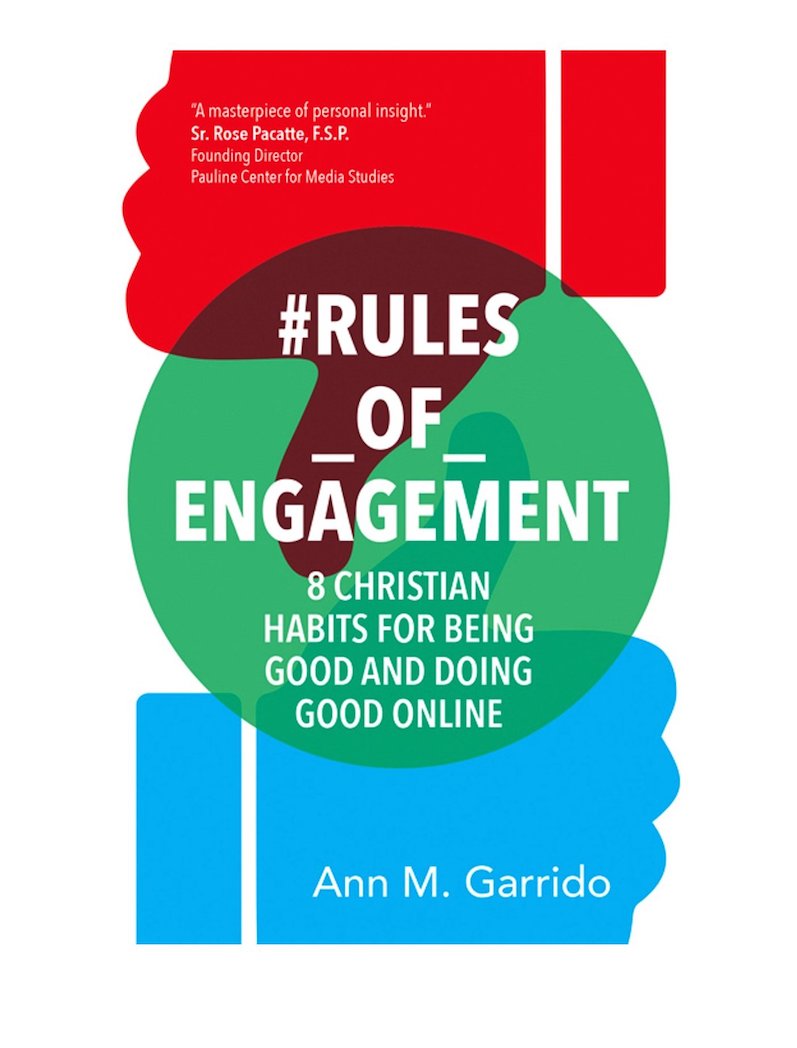“#Rules of Engagement: 8 Christian Habits for Being Good and Doing Good Online” by Ann M. Garrido. Ave Maria Press (Notre Dame, Indiana, 2021). 112 pp., $13.95.
Social media can be a maelstrom. This “sea of pings and dings, tweets and posts, ‘likes’ and hashtags,” as author Ann M. Garrido calls it, grips us and won’t let go. Yet it also gives us many opportunities to respond to the Gospel call to do good in the world. In this succinct, practical guide, she shows how we can practice Christian values online.
Garrido is a homiletics professor at Aquinas Institute of Theology in St. Louis who has written seven books, including “Redeeming Conflict.” Her gift of inspiring thoughtful approaches to everyday challenges shines in “#Rules of Engagement.”
In lively prose, she outlines eight practical habits for Christians using social media, based on recent World Communications Day addresses of Pope Benedict XVI and Pope Francis. They include, first of all, to “clarify your purpose,” which means to think intentionally about why you use social media. “If your purpose … has nothing to do with building connection and community, you should step away from the keyboard; you are not yet ready to engage social media as a Christian,” Garrido writes.
Another key habit is to “know your sources,” and she offers precise, practical tips to evaluate their truthfulness and accuracy. It’s more important than ever to identify and rely on trustworthy news sources, especially after the last two elections, which have highlighted the dominance of bots and troll farms that seek to create societal discord.
No one has the time to fact-check every single social media post in their feed, so Garrido recommends that either you “scroll on by” or run the source by Media Bias/Fact Check (mediabiasfactcheck.com), or other fact-checking sites she lists. She cautions that if a story has a strong emotional effect on you, first check on its factualness before sharing it online. This can go a long way toward reducing the onslaught of online “fake news.”
And resist the temptation to post content that’s “intentionally inflammatory … for the sake of the common good.”
Garrido also shares the insight that it’s vital for Christians to recognize their own biases. Here she quotes the words of Pope Francis from his 2018 World Communications Day address: “Many people interact in homogeneous digital environments impervious to differing perspectives and opinions. Disinformation thus thrives on the absence of healthy confrontation with other sources of information that could effectively challenge prejudices and generate constructive dialogue; instead, it risks turning people into unwilling accomplices in spreading biased and baseless ideas.”
To avoid these online “echo chambers,” we can seek to enlarge our social media bubble to include people and sources (fact-checked, of course) that offer a broader perspective. The goal here is not to react, but to learn.
Ultimately, it’s vital to recognize that there’s a real person present behind the messages they post on social media. This is “a person who feels and struggles and has up and down days, just as I do,” Garrido writes. Aim to treat this person with dignity, even when you disagree with their ideas. And remember that face-to-face, in-person contact is the gold standard.
Use your social media presence to “develop and deepen” the relationships that are most important to you.
Roberts is a journalism professor at the State University of New York at Albany who has written/co-edited two books about Dorothy Day and the Catholic Worker.

